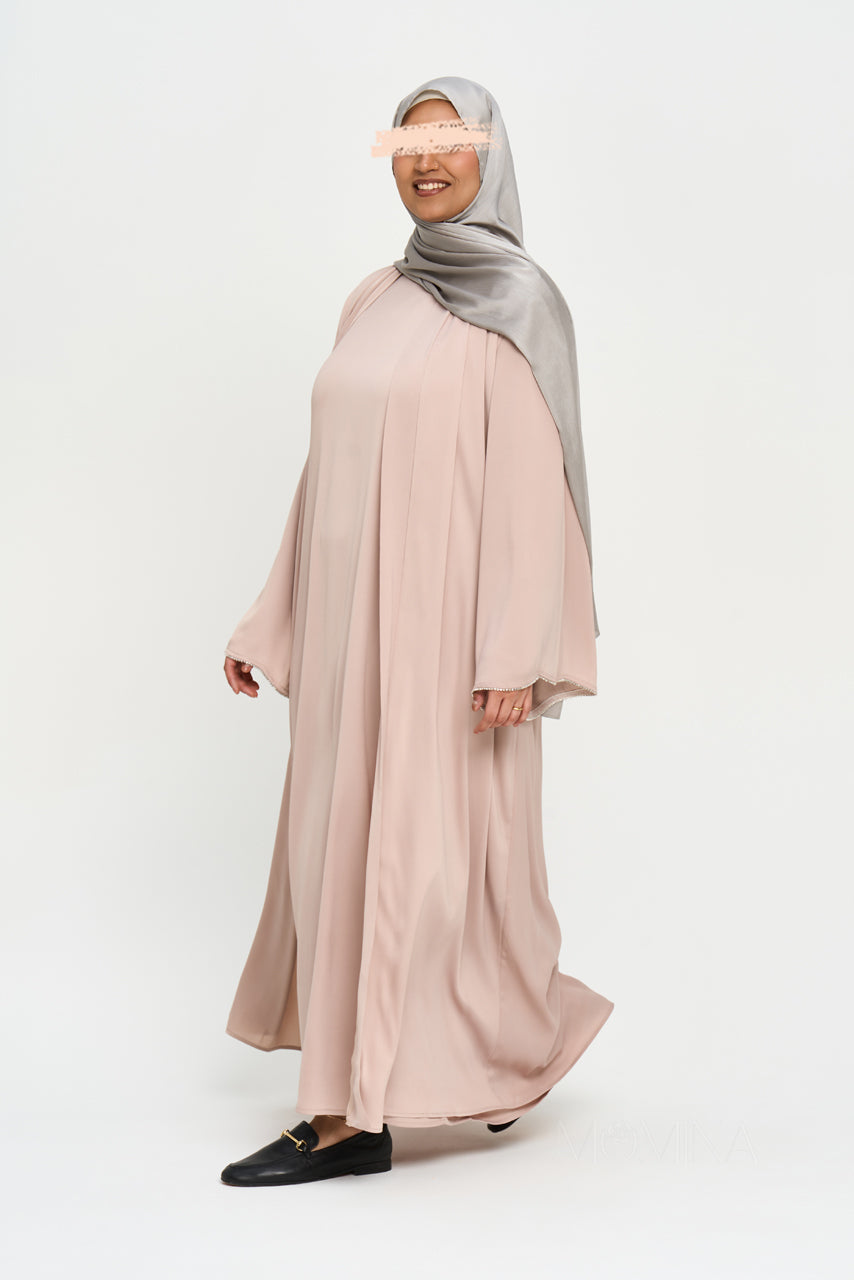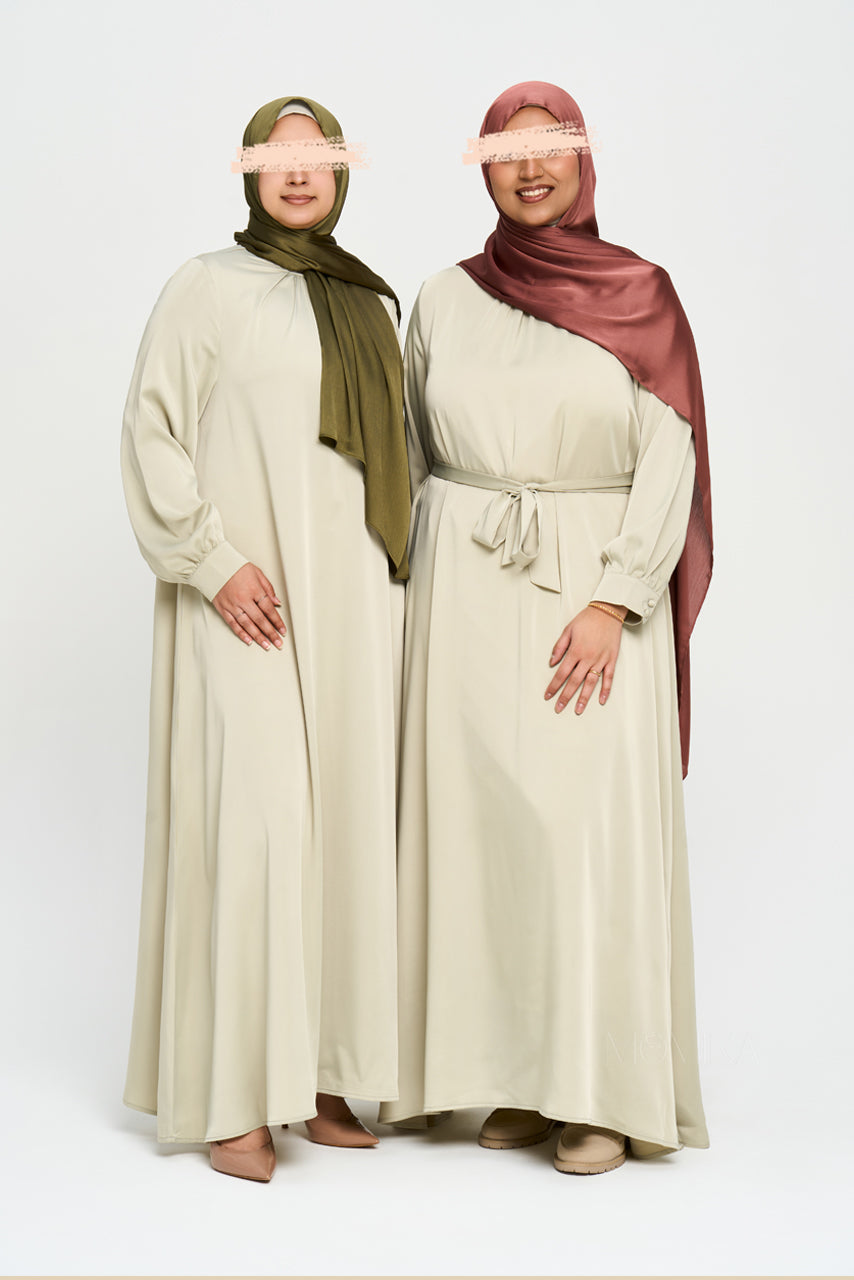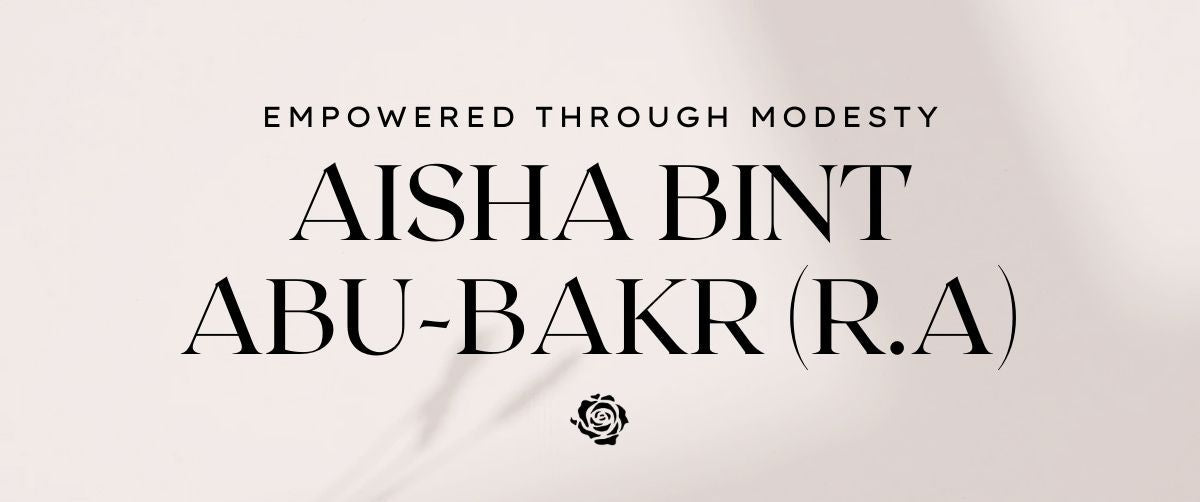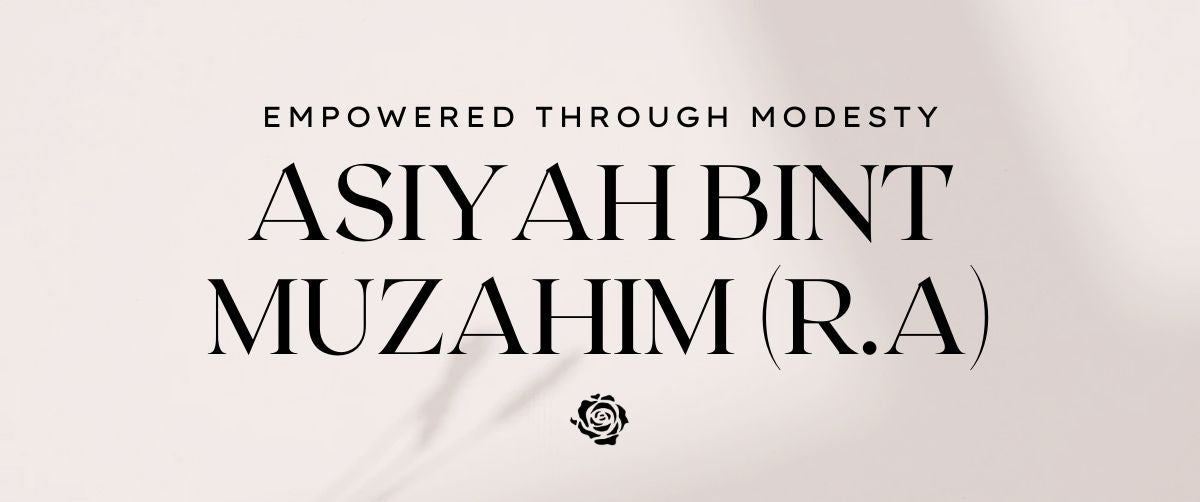Aisha bint Abu-Bakr (RA) was the daughter of Hazrat Abu Bakr Siddiq (RA), who was the closest companion and the first Khalifa of the Prophet (SAW). Aisha (RA) was married to the Prophet (SAW) in the latter part of his lifetime. Khadijah (RA) supported the Prophet (SAW) from the beginning of his Prophethood during his most difficult times up until her death while Aisha (RA) supported the Prophet (SAW) after he migrated to Medina, through various battles and revelations up until his death. Khadijah (RA) and Aisha (RA) were the two most beloved and most prominent wives of Prophet Muhammad (SAW). They both were extraordinary women that set an example of great character, faith, love, modesty and fortitude for all of mankind.
Aisha (RA) was the third and youngest wife of the Prophet (SAW). She is also referred to as ‘Umm al-Mu’minin’ (Mother of the Believers). Aisha (RA) played a significant role in early Islamic history, both during and after Prophet Muhammad (SAW)’s lifetime. She was portrayed as scholarly and inquisitive. She contributed to the spread of Prophet Muhammad (SAW)’s message and continued to serve the Muslim community for more than 40 years after his death. She was a memorizer of the Qur’an and narrated over 2000 authentic hadiths (sayings of the Prophet).
Aisha (RA)’s life demonstrated Islam’s progressive stance on women. She challenged the prevalent stereotypes of society and proved that women share egalitarian rights in Islam. Furthermore, during her life, she was also able to show us that Islam does not discriminate between genders, nor does it mandate the marginalization of women. Aisha (RA) was an excellent scholar and role model who was known for her beautiful and compassionate personality, her brilliant mind and her remarkable memory. Not only that, but Aisha (RA) was the only wife to witness the Prophet (SAW) receiving a revelation and the only one to see Jibraeel (RA) in his human form.
Modesty Through Knowledge
Aisha (RA) is acknowledged for her critical role in the transmission of knowledge she acquired from the Prophet (SAW). She has contributed over 2000 ahadith which have helped shape today's Islamic traditions and knowledge. Aisha (RA) played a huge role in establishing several rights for women such as the right to choose her husband, the right to achieve education and the right to inherit. Furthermore, her life experiences brought Quranic verses favouring women.
Aisha (RA) was given the title ‘al-Siddiqah’ (the one who affirms the truth) because of her intellectual contribution to the development of Islam.
Aisha (RA) was known for her expertise in lawful and unlawful matters, inheritance, Arab history, genealogy, poetry, literature, medicine and the words of the Holy Qur’an. Aisha (RA) was amongst the three wives of Prophet Muhammad (SAW) who memorized the Qur’an. However, she was the only one who devotedly took the time to understand Allah (SWT)’s words, interpret them and provide tafsir.
After the death of the Prophet (SAW), Aisha (RA) was regarded as the most reliable source for hadiths. Many companions and scholars would seek her advice and guidance. Through Aisha (RA)’s words, many sunnah’s of the Prophet (SAW) was passed on, such as how the Prophet (SAW) would perform salaah and recite the Holy Qur’an, how he acted at home and his behaviour as a husband. Her intelligence has benefitted the Ummah immensely.
Modesty Through Politics
Aisha (RA) was a brave, courageous and intelligent woman who was involved in politics and took part in numerous battles. She not only took part in the battles, but she was brave enough to stand at the front line on the battlefield alongside the Prophet (SAW). The first battle she took part in, was the Battle of Uhud where she used to bring water to the fighters. Other battles she is famously known to have taken part in are Battle of al-Khandaq, Hudaybiya, Banu Mustaliq, Banu Qurayza and the Meccan conquest. Aisha (RA) brought water to the fighters and cared for the wounded. It was her involvement in these battles that revealed the act of tayammum (the use of sand or dirt in absence of water to perform wudhu) as mentioned in surah an-Nisa in the Holy Qur’an.
Furthermore, Aisha (RA) came from a political family lineage as she was the daughter of Abu Bakr (RA). She also played an active role in the Prophet (SAW)’s political life. After the death of the Prophet (SAW), Aisha (RA) spent much of her time spreading the words of the Prophet (SAW), sharing her knowledge, interpreting the Qur’an and transmitting hadiths. During Aisha (RA)’s lifetime, many prominent customs of Islam such as the veiling of women had begun to be practised. Aisha (RA) was a leader for the Arab women of her time. She was involved in the politics of early Islam and the first three caliphate reigns: Abu Bakr (RA), Umar (RA) and Uthman (RA).
During a time when a woman’s contribution was neither expected nor wanted outside of her household, Aisha (RA) was directly involved in war and battles, delivered public speeches, and educated both men and women with the sunnah of the Prophet (SAW) and the teachings of the Qur’an.
Modesty Through Generosity
Among the many inspiring qualities of Aisha (RA), one notable quality was her generosity. Aisha (RA) was known to give an immense amount of charity and would leave nothing for herself. She always put the need of others before her own needs. Aisha (RA) would gather things and distribute them to those in need. If Aisha (RA) was given money from a relative or if she had found money anywhere, she would give it all way without keeping anything for herself.
Aisha (RA) had a firm belief that Allah (SWT) would provide for her so it never stopped her from giving what little she had to anyone who would ask. From here we learn that we should be generous no matter what circumstance we are in, whether we are rich or poor, if we have anything that can help someone in need, we shouldn’t back down. We should not hesitate to give up anything for the sake of Allah (SWT) because we know that we will be rewarded for our deeds in this lifetime or the hereafter.
Aisha (RA) continues to be an excellent role model for all women. She portrayed the importance of women to be educated, both worldly and spiritually, she proved the egalitarian rights for women in Islam, she fought for justice and brought along many legal rights for women. She is a truly empowered woman who serves as a motivation to all the women that they can be esteemed and respected in a society without compromising their faith, modesty or character. She left behind a legacy of intelligence, authority, devotion, faith, and generosity.
























